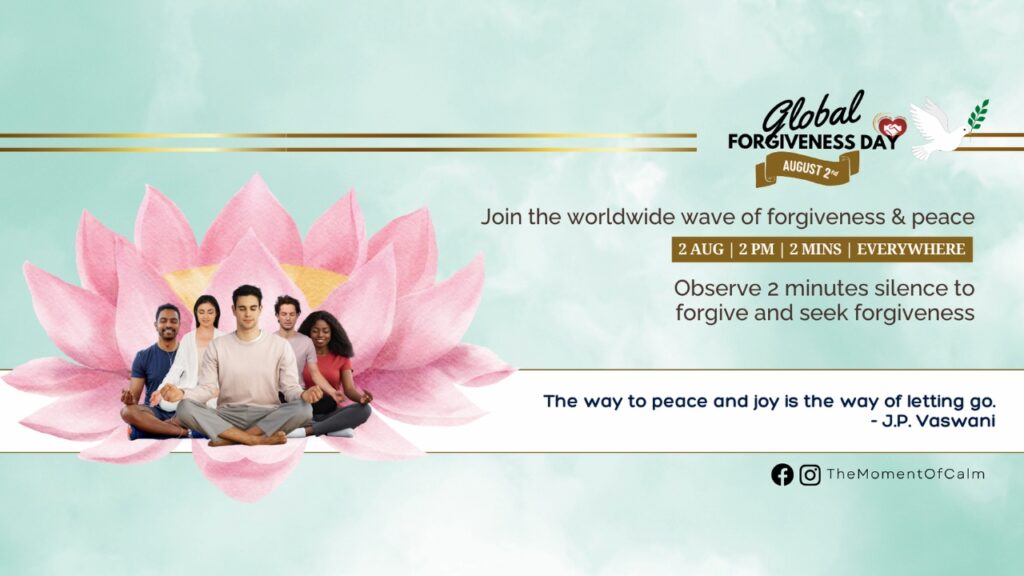
Science is discovering that the underlying cause of most diseases is the turmoil of negative emotions of hate, envy, resentment and so on. This is the opinion of many senior doctors too, who have come to this conclusion from dealing with scores of patients. The truth is that by offending or blaming others we cannot have peace within. Because of the intrinsic body-mind connection, the negative emotions have their effect on your cells and they aggravate the disease. Which is why, for the sake of your own health and wellbeing, it is better to learn to forgive and love, than to pop endless pills. To arrive at forgiveness, one has to pass through four stages.
In this article I will take you through each of the four stages stage of forgiveness to help you start forgiving because, as you will see, it is so vital to your health, happiness and peace of mind.
The Four Stages of Forgiveness
1. Hurt
The first stage of forgiveness is hurt. Someone has wronged me, done something mean to me; someone has been unfair to me and I cannot forget it; I feel hurt. The hurt keeps on throbbing within me. It is here that we must remember that it is not I who feels hurt, but the ego.
A woman met a holy man and confessed that she had resentment in her heart against a prominent sister of the community. The holy man said to her, “Go to her immediately. Don’t try to justify or excuse yourself. Tell her that you have had an unkind thought about her. Be humble and ask for forgiveness.”
The woman said, “I can’t do that. I can’t forget the hurt she had inflicted on me.”
The woman was at the first stage – the stage of hurt. Those that are at this stage naturally hold grudges, not realizing that those who hold a grudge injure themselves more than the ones against whom the grudge is held.
Hatred and malice, like anger and worry, bring harm to the body, since they poison the blood. And they keep on increasing, for, “a grudge is the only thing that does not get better when it is nursed.”
2. Hate
Hurt leads to hate, which is the second stage. I cannot forget how much I have been hurt and so cannot send out thoughts of goodwill to my enemy. In some cases, I hate the person so much that I want him or her to suffer, as much as I am suffering.
Madam Chiang Kai-Shek hated the Japanese. Her mother was a pious woman who prayed often. Madam Chiang said to her, “Why don’t you pray to God that He may drown Japan in the waters of the ocean?”
Her mother, of course, said to her, “My child, how can I offer such an evil prayer?”
An artist once painted Hatred as an old man shriveled up, pale as death, clutching in his claws lighted torches and serpents, and cruelly tearing out his own heart with black, decayed teeth. Asked to explain the significance of the picture, the artist said, “Hatred is an old man because it is as ancient as mankind; pale because he who hates, torments himself and lives a tragic life; with claws because it is so unmerciful; with torches and serpents because it creates discord; and it tears out its heart because it is self-destructive.”
3. Healing
Hurt leads to hate. Then comes the third stage—healing. God’s grace descents on me and I begin to see the person who has hurt me in a new light. I begin to understand his or her difficulty. My memory is healed and I am free again.
A girl came to a holy man and said, “I know not why, but I am unable to sit in silence and pray or meditate. I feel restless. I used to be so happy.”
The holy man asked, “Why do you think is it so?”
The girl answered, “I think it has something to do with one whom, at one time, I regarded as a friend. But she was very cruel to me, and I said that I would never forgive her, never talk to her. I am sorry I said it, but since then there has been no peace in my heart. What shall I do?”
The holy man said, “It is better to break a bad vow than to keep it. Go to her and seek her forgiveness.”
The next morning, she went to her friend and confessed her uncharitable attitude and asked her forgiveness.
The one whose forgiveness was sought burst into tears. She said, “You have come to ask for forgiveness. It is I who should be asking for forgiveness, for I am ashamed of my wrong attitude.”
The two friends were reconciled.
4. Coming together
After healing comes the fourth stage of coming together. I am anxious to make friends with the person who hurt me; I invite him into my life. I share my love with him and we both move to a new and healed relationship.
Conclusion
Forgiveness isn’t reserved only for the saints and sages. It is not a feat of supernatural power. It is just about letting go of the hurtful past, once and for all. It is a way of moving on. Forgiveness asks you to see things differently, look at life from a new perspective. It is the realization that we cannot stay bitter and angry for the rest of our lives.
Forgiveness and love are really two sides of the same coin. And love, as you know, is the strongest force in the world.

 Spot an error in this article? A typo maybe? Or an incorrect source? Let us know!
Spot an error in this article? A typo maybe? Or an incorrect source? Let us know!
